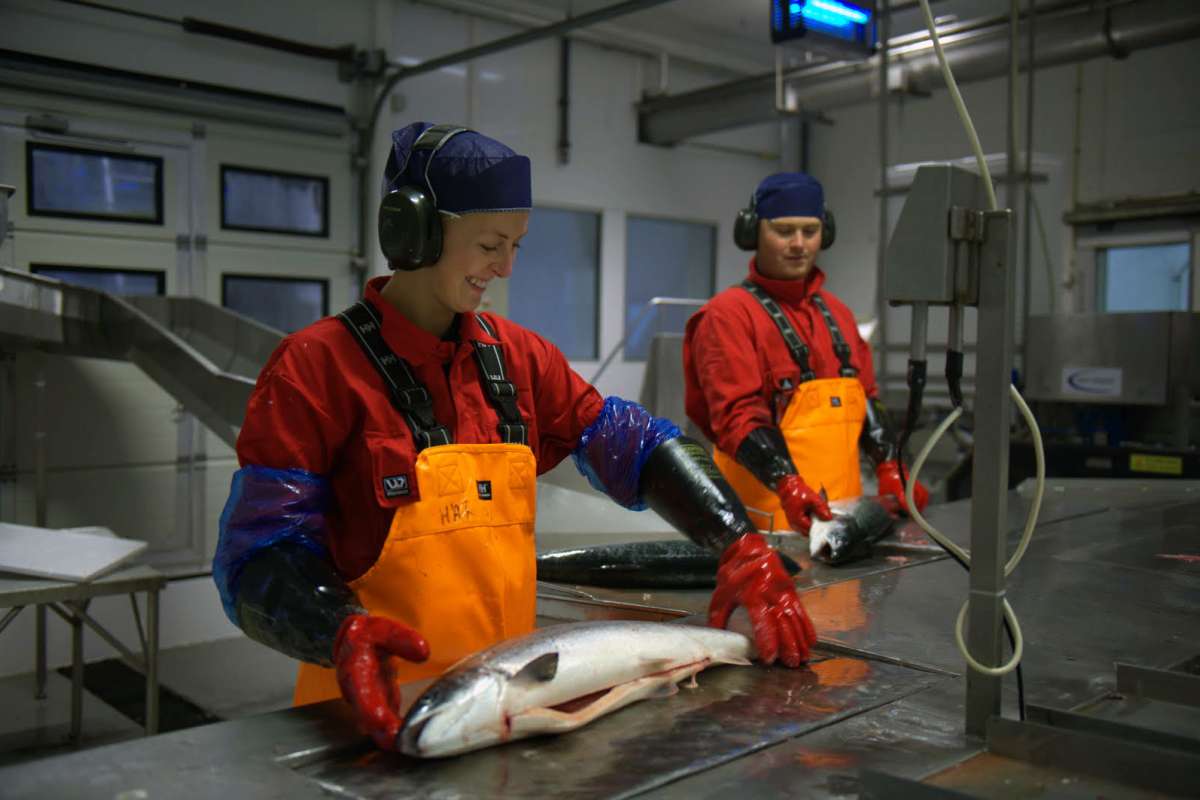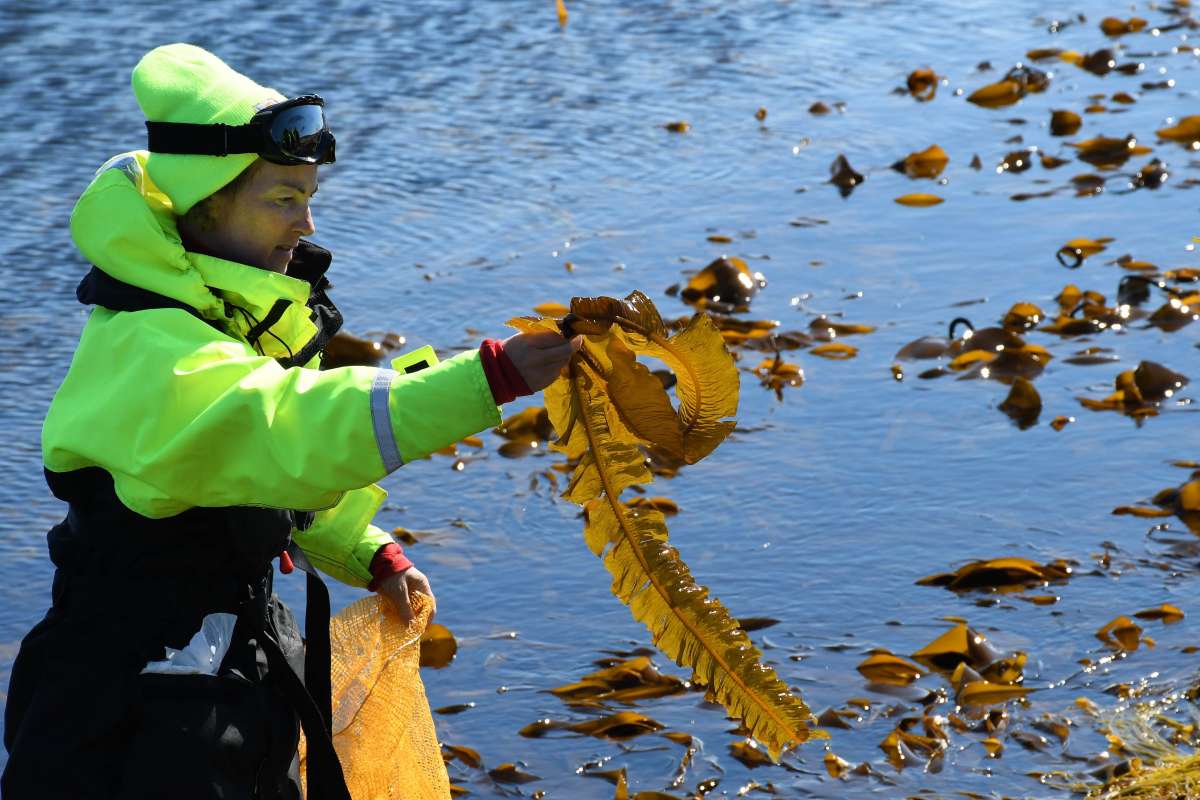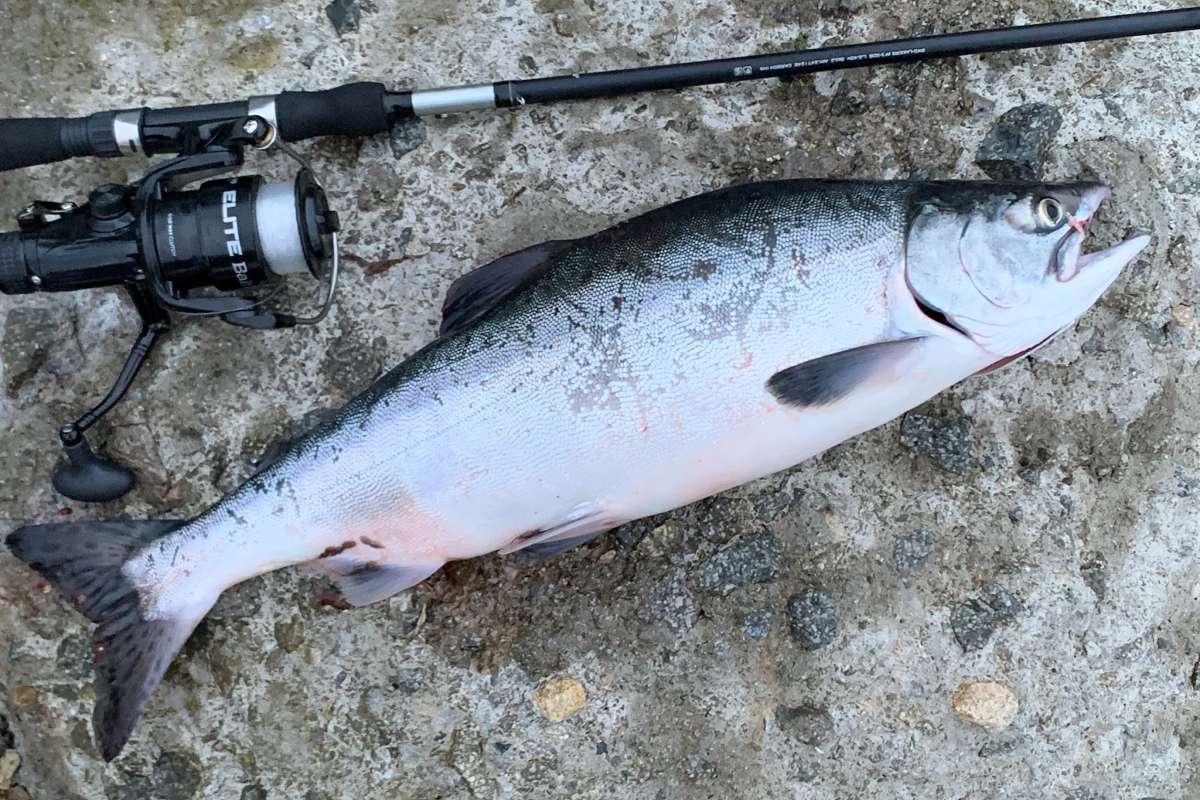Fish feed with seaweed
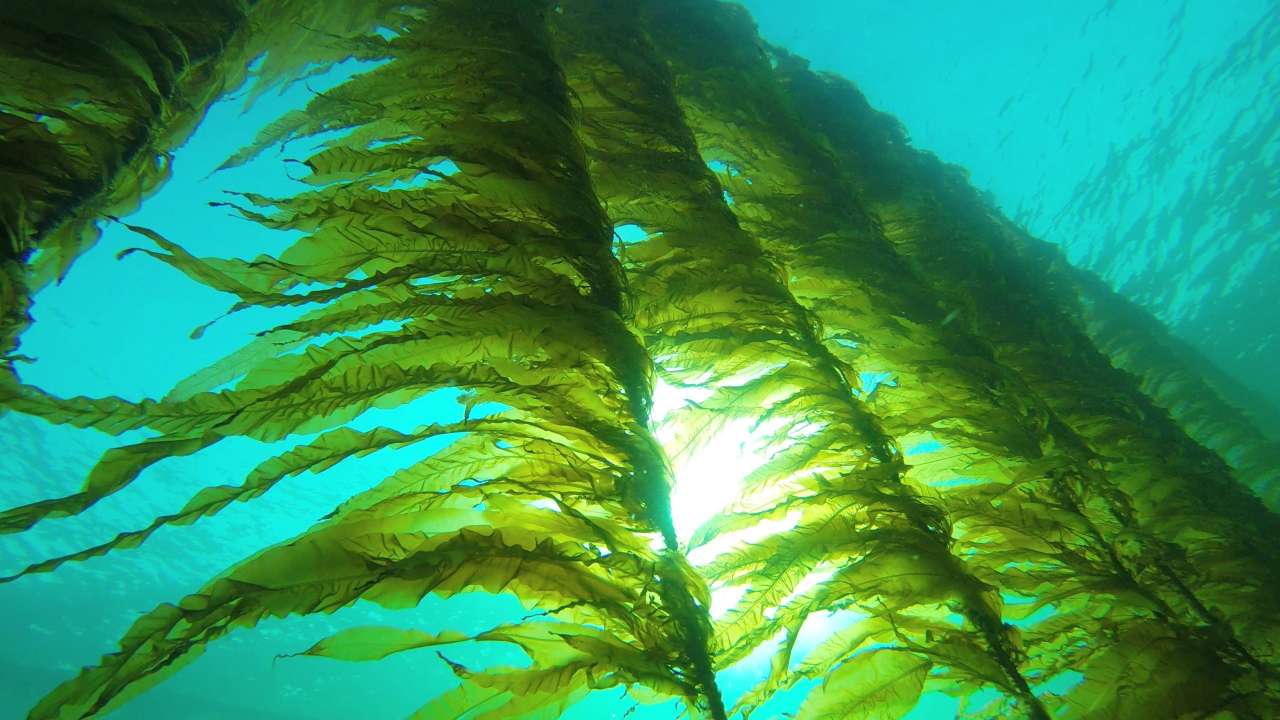
Winged kelp (Alaria esculenta) Photo: Seaweed Solutions AS
AquaUP is a new pan-European research project that aims to develop sustainable fish feed containing modified functional compounds from seaweed.
The aquaculture industry is anticipating intensive production growth to meet future food demand. Yet, this growth is constrained by several challenges targeting the health and integrity of the fish. Just like humans, salmonid fish also get feed-related inflammatory reactions caused by antinutrient factors in vegetable protein sources, such as soybean meal, and a too low omega-3 oil content.
Suboptimal nutritional status, in turn, makes the fish susceptible to other challenges such as diseases, parasites such as sea-lice, and handling. The result? Extreme levels of mortalities, as seen in recent years of salmon farming.
Other constraints for further seafood production are related to limited circularity in the aquaculture industry. Large nutrient loading from farm-sites impacts the environment and represents a loss of valuable resources such as nitrogen and phosphorus. Similarly, the release of chemotherapeutics from de-lousing treatments also affects the ecosystem, impacting shrimps and molting crabs living in the vicinity of the fish farms.
On the other hand, the ongoing global aquaculture revolution, analog to the agriculture revolution some 12,000 years ago, has led to more farmed and harvested seafood than the global wild catch combined.
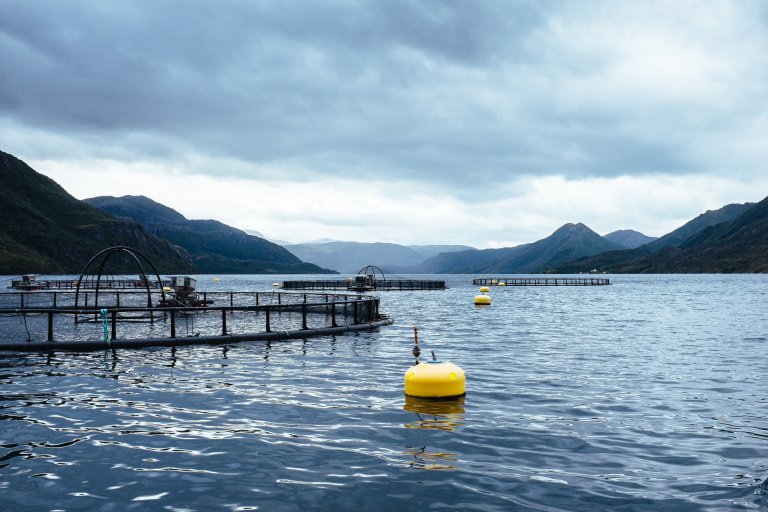
In search of seaweed-modified functional compounds
To help grow the aquaculture industry, one strategy is to create alternative aquatic feeds enriched with functional compounds. These compounds can enhance feed quality, promote animal health, and minimize environmental impact.
This is the goal of AquaUP, a new pan-European marine research project, led by the Norwegian Institute of Bioeconomy Research (NIBIO) in Bodø.
Multidisciplinary teams of scientists from Italy, the Netherlands, Ireland and Norway aim to investigate how seaweed-modified functional compounds can be used in aquatic feed to improve fish health.
– Our goal is to improve growth and strengthen the farmed fish’s immune response and disease resistance, says NIBIO Research Scientist Dr. Abirami Ramu Ganesan.
Dr. Ganesan leads the three-year, € 1.3 million, multidisciplinary AquaUP research project on sustainable fish feed for the future.
– We want to develop a climate-neutral, environmentally sustainable, and resource-efficient feed additive, based on seaweed, that addresses the main constraints blocking industrial growth.
The AquaUP project consortium is composed by NORCE, Arctic Seaweed, and Seaweed Solutions in Norway; Maynooth University and University College Cork in Ireland; the University of Bologna in Italy; and Wageningen University & Research in the Netherlands.
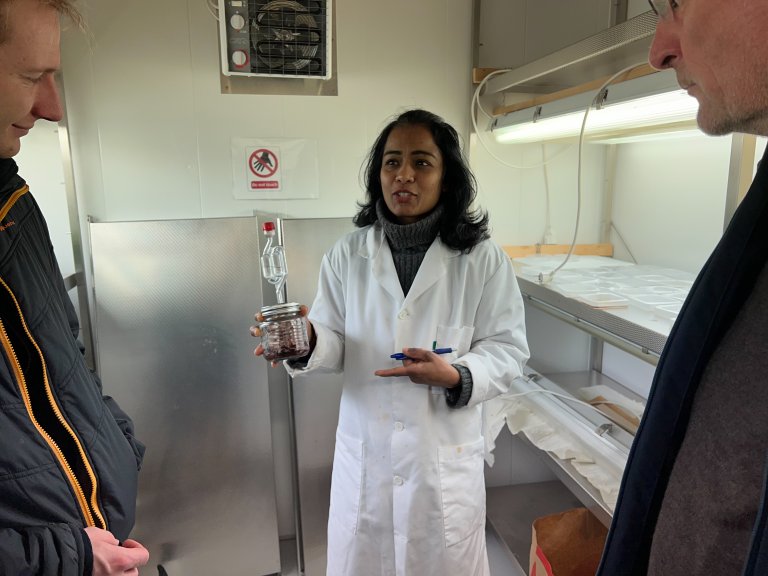
Less infections and lower mortality
Dr. Ganesan explains that in order to support fish health and welfare, affordable fish feeds need to be developed by including so-called immuno-stimulating functional ingredients. This will counteract the antinutrient factors present, relieve the gut inflammation and make the fish more robust and less prone to disease and infections.
– Seaweed-based ingredients that stimulate the immune system may help fish recover more quickly after delousing by boosting their mucus production, Dr. Ganesan says.
– This faster restoration of the protective mucus layer could lower the risk of infections, wounds, and even mortality.
In addition, seaweeds, such as rock weed (Ascophyllum nodosum), sugar kelp (Saccharina latissimi), and winged kelp (Alaria esculenta), grow fast and represent a promising aquaculture feed crop.
– Seaweeds produce a lot of valuable biomass, without the need for fertilization, arable land, and fresh water, and they can also, potentially, become a valuable source of nutrients in fish feed, Dr. Ganesan says.
– Although humans and our livestock are generally more tolerant than fish for these diet-related issues, all would benefit from these dietary solutions.
Biorefinery to the rescue
However, seaweeds can also contain compounds that reduce the ability of fish to absorb the seaweeds’ useful nutrients in their gut, such as phytic acid, tannins, terpenoids, and alkaloids.
One possible solution, Dr. Ganesan explains, is to use a biorefinery process that helps extract the seaweed’s nutritional components, but without using harmful chemicals.
– Stepwise, green, extraction and purification methods are needed to unlock the potential of seaweeds to contribute to a sustainable and circular blue economy, Dr. Ganesan says.
She explains that testing of the potential seaweed-derived functional compounds is done both in the laboratory (in vitro) and on fish farms (in vivo).
– The laboratory testing will be conducted at the University of Bologna in Italy, and by NORCE in their laboratories in Norway. The testing on live fish will take place at Wageningen University in the Netherlands.
Contacts
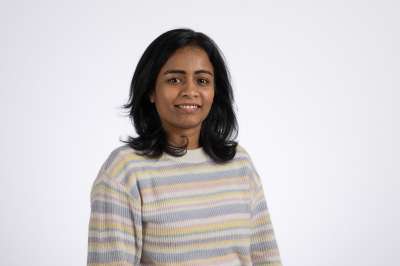
Facts about AquaUp
AquaUP is a three-year (2024-2027), € 1.3 million, multidisciplinary research project on sustainable fish food for the future, funded by EU’s Sustainable Blue Economy Partnership and led by the Norwegian Institute of Bioeconomy Research (NIBIO) in Bodø.
Its goal is to both explore the potential of utilizing new sustainable ingredients-algae, and; develop climate-neutral, resilient, and sustainable business solutions for blue feed production; engage seaweed farmers, feed producers, processors, stakeholders, and end-users; and foster collaboration between science, citizens, and policymakers through co-creation.
Research partners and stakeholders
The Norwegian research partners are NIBIO and NORCE; the international research partners are from the Maynooth University and University College Cork in Ireland, the University of Bologna in Italy, and from Wageningen University & Research in the Netherlands. Stakeholders are Arctic Seaweed and Seaweed Solutions.
Contacts


